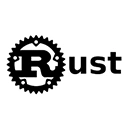Rust programs have a straightforward structure that consists of several key components. Understanding this structure is essential for writing and organizing Rust code effectively. Below, we will explore the basic elements of a Rust program.
1. The Main Function
Every Rust program starts execution from the main function. This function serves as the entry point of the program. It is defined using the fn keyword, followed by the function name and parentheses.
Example of a Main Function
fn main() {
println!("Hello, world!"); // Print a message to the console
}
2. Statements and Expressions
Rust code consists of statements and expressions. A statement performs an action and does not return a value, while an expression evaluates to a value. In the example above, println! is a macro that is an expression, and it prints a message to the console.
Example of Statements and Expressions
fn main() {
let x = 5; // Statement: binding a value to a variable
let y = {
let z = 10; // Inner block
z + 5 // Expression: evaluates to 15
};
println!("The value of y is: {}", y); // Output: The value of y is: 15
}
3. Variables and Data Types
Rust is a statically typed language, meaning that the type of a variable must be known at compile time. Variables are declared using the let keyword, and you can specify the type explicitly or let the compiler infer it.
Example of Variable Declaration
fn main() {
let a: i32 = 10; // Explicit type declaration
let b = 20; // Type inference
println!("a: {}, b: {}", a, b); // Output: a: 10, b: 20
}
4. Control Flow
Rust supports various control flow constructs, including if statements, loops, and pattern matching. These constructs allow you to control the execution flow of your program based on conditions.
Example of Control Flow
fn main() {
let number = 7;
if number < 10 {
println!("The number is less than 10.");
} else {
println!("The number is 10 or greater.");
}
for i in 1..5 {
println!("Iteration: {}", i); // Output: Iteration: 1, 2, 3, 4
}
}
5. Functions
In addition to the main function, you can define your own functions in Rust. Functions are defined using the fn keyword, followed by the function name, parameters, and return type.
Example of a Function
fn main() {
let result = add(5, 3);
println!("The sum is: {}", result); // Output: The sum is: 8
}
fn add(x: i32, y: i32) -> i32 {
x + y // Returns the sum of x and y
}
6. Modules
Rust allows you to organize your code into modules, which can help manage complexity and improve code organization. Modules are defined using the mod keyword.
Example of a Module
mod math {
pub fn multiply(x: i32, y: i32) -> i32 {
x * y
}
}
fn main() {
let product = math::multiply(4, 5);
println!("The product is: {}", product); // Output: The product is: 20
}
Conclusion
The basic structure of a Rust program includes the main function, variable declarations, control flow constructs, functions, and modules
Understanding these components is crucial for writing effective Rust code. By mastering the basic structure, you can build more complex applications and leverage Rust's powerful features for systems programming.

